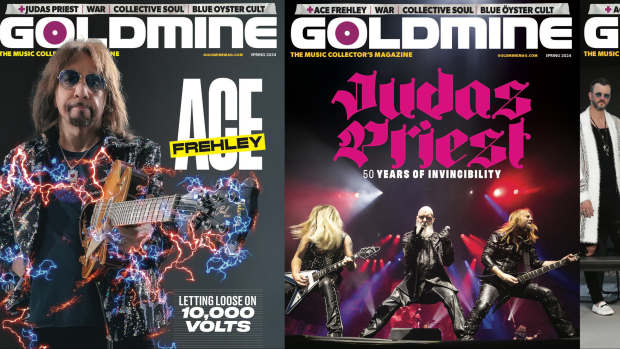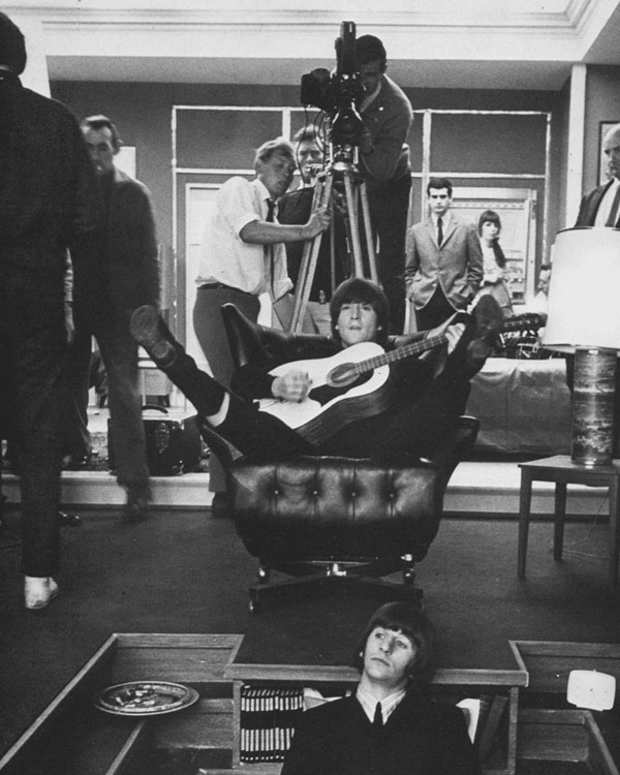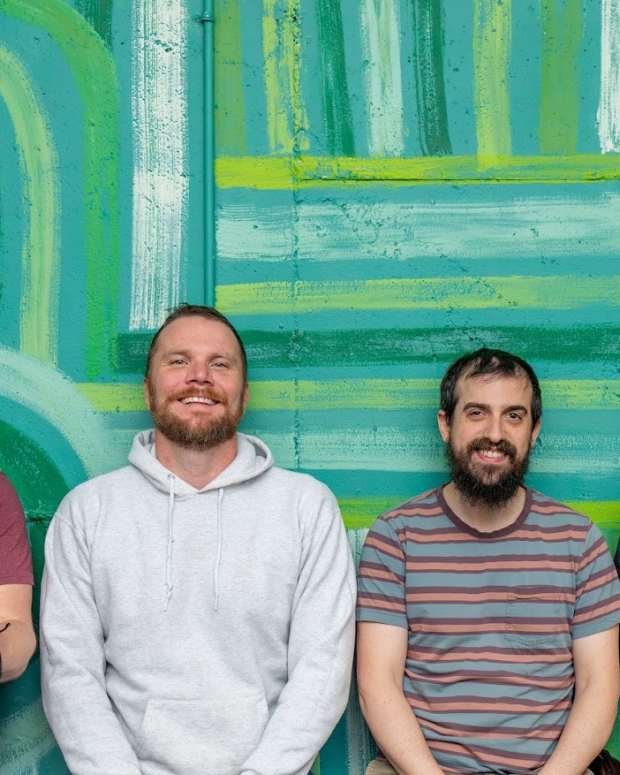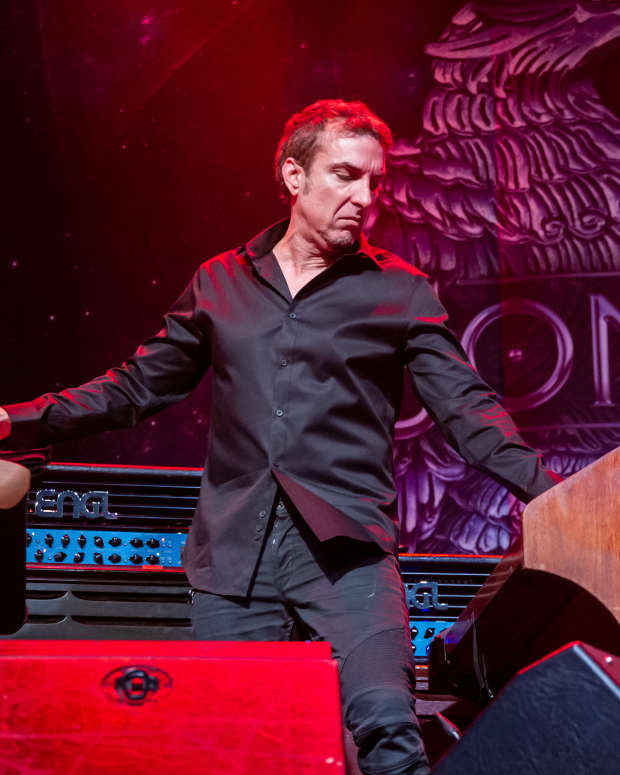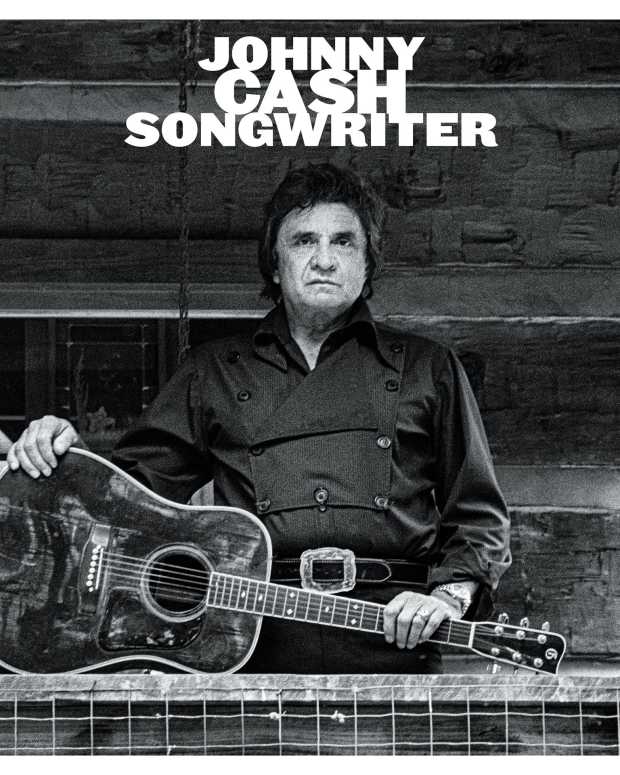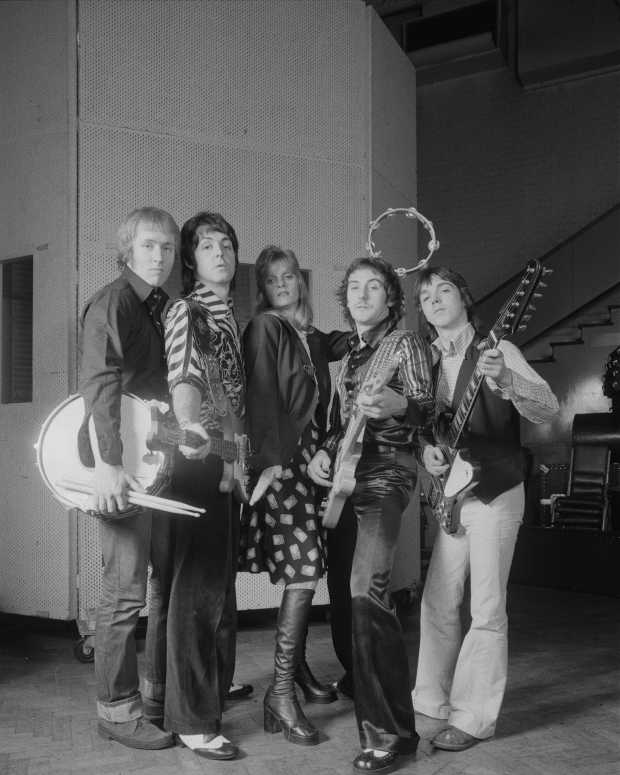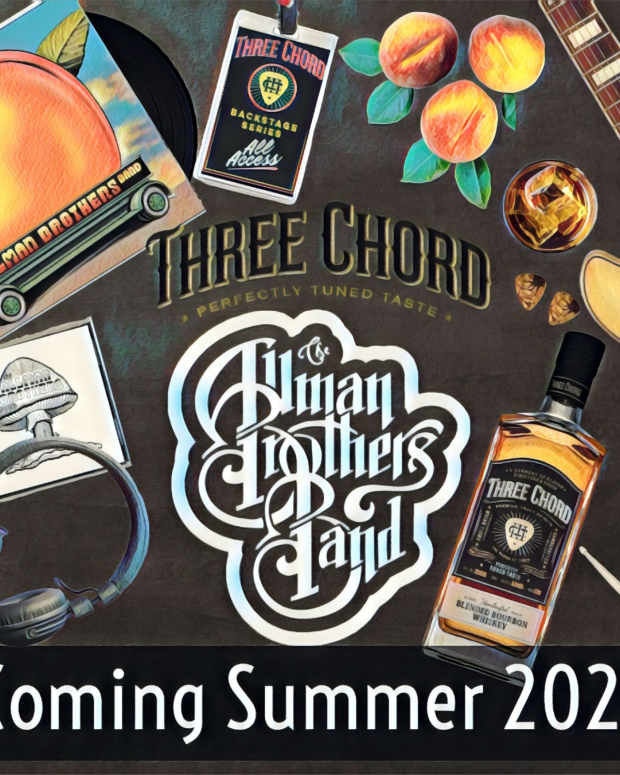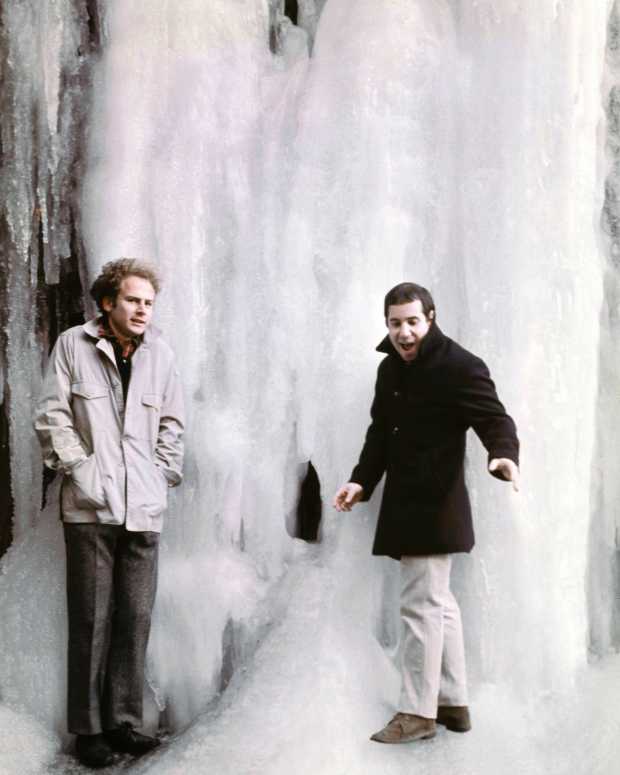Web Exclusive! An Interview with Collective Soul's Ryan Hoyle
By Jeb Wright
Call him lucky, ambitious, hard working or just in the right place at the right time, Ryan Hoyle has had an amazing career since joining Collective Soul in 2003.
The one time session drummer snuck into the band during some of Soul's dark days and brought new energy and light to the group. He is obviously talented but he is also very driven for success. He is creative both musically and intuitively. He sends out energy and the universe seems to magnetize itself to it and bring him what it is he envisions. He also has tenacity and patience. He knew he would play with Paul Rodgers ten years before he actually did. He allowed fate to happen but also kept the seeds planted to see his hope and dreams come to fruition.
What follows is an in-depth conversation on what it is like to go from sneaking in the back door of the studio to re-record another drummers parts to playing on sold out stages every night to living the classic rock dream and touring with Paul Rodgers.
Check out Collective Soul's latest album, Afterwords, to best appreciate the band's creative vision as well as Hoyle's passion for drumming. (A still from the group's video shoot for the song "Hollywood" is featured below with this article, courtesy of the band's Web site, www.collectivesoul.com.)
How and when did you join Collective Soul?
Ryan: My first session with CS was on October 13, 2003. At that point, I was living in Nashville and was totally focused on creating a career in the studio. I was the house drummer at IV studios under a producer named Dexter Green. Dex would frequently call me to replace some of the tracks of the bands he was producing and one of those songs was co-written by Ed Roland (lead singer for Collective Soul). It was kind of like one of those fairytale things. Ed heard the track and asked who was playing and how long did it take to do the track. Dexter told him who it was and that it took about forty-five minutes. That was it. I was on my way to Atlanta.
The first year was spent primarily as a session drummer; I didn't get involved in any of the band discussions or anything. We did maybe three or four sessions in Atlanta. We would track for a couple of days and get two or three songs. Then, I would go home and they would call me back again a month or so later. Eventually, they decided that they wanted to record the rest of the album in Nashville. Still, I would just come in and do the tracks and leave. I had no idea that it would go any farther than that. The thought of being in a band at that time in my life was actually didn't even occur to me. I was just really glad to be working on a Collective Soul record; I was such a big fan of the band.
I have to tell you something interesting. I have always had a little home recording set-up and would play to my favorite songs and really want to learn them note-for-note and really get inside what it was that made that song so moving to me. I would play along with it and then record my drums along with the track so I could listen back to it and analyze what I could do to improve. I don't recall ever mixing down and saving any of those performances. I actually burned two Collective Soul songs that I played along with to CD. Both songs were from the album Dosage. That album really impressed me. I had no inkling that I would potentially be working with them. I found that to be really strange that I kept that stuff. I thought it was amazing that a couple of years later I was sitting in the studio making their new album with them. I do remember thinking that they had the right guy when they called me in. I think it worked out very well that I had so much background with their music.
How did you go from being a hired gun session musician to being a member of the band?
RH: I worked in the studio for about a year and then the album was released in November 2004.
I went to the record release party at The Roxy in Hollywood and after that, I didn't hear from anyone for a couple of months as they had started the tour. Early one morning in January, I got a call from Ed. He asked me if I would be into coming out on the road with them. He explained that he needed me to come help out for a while. He said it was not a permanent thing but it was not going to be just a month or two either. He said that he could not tell me how long it would last because he didn't know. I said, "yes" immediately.
I was living the dream. I was playing some of my favorite songs on stage with one of my all-time favorite bands. My first show was in Colorado. There were 8,000 people packed in this huge amphitheater.
So, I was a sub for about a year. The following year there was a discussion and it was made clear that my involvement would potentially be more permanent- this was January 2006. In my first year, we played around 160 shows and filmed a DVD. In 2006, I started getting integrated within the media and I started getting involved with the meet and greets. By 2007, I felt very much at home within the band. I was involved with the album artwork and we had all of our business understandings figured out. It doesn't happen overnight. I had to become part of a family; the other guys in the band grew up on the same street. I think they wanted to see me at my worst and at my best. They wanted to develop trust and see if I was going to be responsible with things that affected the rest of the band. In the beginning, I thought if you were on stage and on a record then you were in the band but the reality is that the process tends to move slower than that. I remember consciously deciding that I had come far enough and that I really wanted to be in the band. So, I just acted as if until it happened. I think that you emit the kind of energy that you are thinking about. I loved being in the band and I believed in their creative vision. I was willing to see the other members as leaders and peers and I made up my mind I was in the band.
Collective Soul came out when Grunge was big but they are not just a Grunge band. Collective Soul has such a large scope in their talent and creative vision.
RH: I agree. I was exposed to "Shine" when it came out like everyone else and I loved it. I remember hearing "December" off of the second album and something about that track really got my attention. It was very simple, very infectious. The arrangement was unique and the use of the percussion as a signature melody was very interesting to me. The song had a nice use of space and the frequent starting and stopping added a cool element of tension and release. By the time Dosage came out I was a fan. I was ready to hear what they were going to do next. When I bought that record I just could not believe it. If you don't own that one then I highly recommend it.
You hooked me with the new album. It starts out with a huge bang but then as it goes on it has so many different types of songs and it is really a complete album.
RH: I have always loved that about Collective Soul. When it comes to a dirty rock song, they do it so well, but they also do so much more. A lot of albums I hear have so many songs that are of the same attitude. You listen to the first song and you go, "YEAH" and then you listen to the second song and you go, "YEAH" and then the fourth song, you are worn out. To me, Collective Soul records kind of have it all - it is like your entire week instead of just one moment.
How does the writing process work within the band?
Ryan: Ed writes most of the music and co-produces the albums. I remember being so curious as to what it was really like to work with him. My experience with him has been pretty much the same since we met. Most of the time, he is extremely open and welcoming of my vision. There are certain things that he is not willing to accept input on and there are other areas where it is amazing how much latitude he gives the people he works with. At the end of the day, as the primary songwriter, the producer and the front man for the group, he has the final say. Sometimes when I am practicing and coming up with my parts for the songs I think, "This one is pretty far fetched. He will never go for this." It is always a pleasant surprise when he does. Over all, I think he trusts me musically and he is very giving when it comes to the drum department.
I looked at your MySpace page where you list your favorite bands and the list goes on forever.
I am an extreme fan of music. I am a Classic Rock junkie. I am ecstatic when I hear great rock music. I went to school to study jazz but I quickly discovered that it was not the first thing in my heart that I felt. However, I do think you can draw inspiration from other genres. I love a lot of hip-hop and R&B as well. A lot of the inspiration from the new album was drawn from my love for old soul and new hip hop records alike. There are a few songs on the new album that have a very programmed sound but we didn't use any drum loops whatsoever. I've been using three hi-hats, two bass drums, and two snares in my setup. I try and emulate what I hear the cutting edge programmers doing. I love studying records and analyzing the drum tracks; I try to figure out what it is that moves me and how I can possibly incorporate that vibe into my style and potentially the sound of the band.
You are only 29 years old. How did you discover these Classic Rock records that were released years before you were born?
RH: My parents introduced me to Elvis, the Beatles, the Eagles and Willie Nelson. My Mom had a huge record collection and I would dig around in it and discover music from bands like Chicago. In seventh grade someone put headphones on me on the school bus and said, "If you're a drummer then you have got to hear this" and it was "Bring It On Home" by Led Zeppelin. Everything changed. Frampton Comes Alive was a huge record for me at that time as well. In ninth grade I discovered Rush. I fell in love with Classic Rock. I still practice to a lot of Classic Rock. I am a huge fan of Phil Rudd and AC/DC. He just slays me. I love a lot of dance music and electronica too but there is nothing that thrills me like a serious rock record. I went crazy over bands like Kansas and Boston when I was younger. I learned every note off of Boston's first record and off Kansas' Leftoverture.
I love watching Phil Ehart of Kansas play live. He never makes any 'best drummers' lists but when you see him play live he makes your jaw drop.
RH: I love him too. I saw him play live in Nashville at the Ryman. I respect the pride he takes in his performance. He doesn't just sit there and phone it in. He shows up every night for real and he cares about it. It shows when he plays live and that is what I love about him as a drummer.
You were on the Paul Rodgers DVD Live in Glasgow." How did you get that gig?
RH: That's a great story. It goes back to when I was in college. I got a job working security at rock concerts. I think I made about four dollars an hour and probably owed them after taxes but I got to see free shows. I am a small guy and here I was doing concert security - it's pretty funny. Anyway, one of the shows I saw was Paul Rodgers. I was so impressed; Paul's energy was devastating. There was just something about him. About that time, a friend asked me, "Who is the greatest drummer in the world" and I would say, "Buddy Rich." They replied, "No, he is just the greatest drummer you have ever heard of." That really changed my life. It opened my mind to the notion that if people don't know about you're up to, then what are you really doing? So from that point on, I started thinking about coming up with ways to cleverly, gently, and non-obtrusively let people know what's happening. So, I bought Polstar's "Confidential Management Roster" and I made up these really nice promo packs. I started contacting managers from artists that I really liked. I would call these people up and say, "This is Ryan Hoyle and I am a drummer. I live in Texas" blah, blah, blah." Most of the time they would tell me to go ahead and send in my pack and they would be glad to keep it on file. Sometimes they would just say, "F@!$ off" and hung up. A lot of times I would go through my speech and the guy on the other line would ask, "Are you serious?"
Out of all the hundreds of promo packs I sent out, I only got one sincere reply and that was from Chris Crawford, who is Paul's manager. I think somehow he identified with me because I lived in the Seattle area and he is from that area too; I was like the hometown boy. I decided that it might be a long shot but I was going to play for Paul Rodgers. I knew it would happen because I felt it was meant to be. For about ten years, from the age of nineteen until the age of twenty-eight, I gently kept in touch with Chris. I would send some of the stuff I was working on at the time and then I wouldn't hear from him for a year or so. When I started working with Collective Soul, I also started meeting a lot of people who also knew him. After the Youth tour was finally over, I was exhausted. I was actually moving from Nashville to Los Angeles and I remember thinking, "I want another gig." My hands were swollen and I was sore but I wanted to play. I put out some feelers and then I got a call from Chris Crawford. I was talking to him from the U-Haul as I was driving across country and I told him, "I want to play." He said for me to send him some stuff. So I sent him the DVD and some Collective Soul records and he called me back and said, "Write down this address, Paul wants you to send some stuff to him directly." I immediately put a package together and sent it to Paul. Two days later I got a call from Chris asking me if I could be in Seattle in two weeks. I had two weeks to learn all the material!
Being an American, I knew a lot of the Bad Company songs but it turns out that this tour was going to be in Europe promoting a Free DVD that Paul had just released. A lot of major Bad Company songs were not even in the set. A lot of the Free songs had extended jams within the arrangement. How do you learn and practice a jam? You don't. You just have to show up and let it rip. I would get an email from Howard (Leese, Paul's guitarist and band leader) every morning saying that the set list was changing. Howard would tell me, "This song is no longer in the set but this one is." I went to iTunes and bought everything by Paul Rodgers I could find and waited for Howard's email every morning to see what was next. I was in my practice room for six to eight hours a day.
We rehearsed at Howard's place in Seattle and it was really low key. There was no PA, only amps and drums. We would just play and learn the songs. Then, we went up to Vancouver to meet with Paul and rehearse with him. I shot videos of this too, which are really cool. We were rehearsing in a recording studio and I remember him looking really classy; he was all decked out. He presents himself in a very noble manner; he is a true rock star. He walked in and just looked around the room and then came up to me and said, "Fancy a jam?"
Paul wasn't messing around in rehearsals. It was like what I said about Phil Ehart. When Paul said, "Fancy a jam" he wasn't just talking about going over some tunes. He meant, "Do you want to rip Wembley Stadium right now?" As soon as he picked up the microphone you couldn't tell if he was in a rehearsal studio or in an arena - he is that serious.
I have watched him do sound check and it was like a clinic.
RH: One would think that a person of Paul's caliber would just fire people left and right who were not doing exactly what he wants but he doesn't. Paul would sit on the tour bus everyday with his headphones on listening to the show from the night before. He would write notes about his performance and how we could do better. He would write notes about the light show or about the set list and how it could flow more effectively. He would write notes about the beginnings, endings, and the tempos of the songs. It wasn't in an obsessive/compulsive way but rather it was in a very precise, constructive, and valuable way. No one ever felt like they were being attacked. He would show up at sound check with his list and give everyone the most constructive feedback. I certainly wouldn't call Paul my best friend, as he is very much a boss to me; an idol and a hero as well. He conducts himself with so much integrity; he translates that to the people around him and makes everyone better than they are.
Tell me the story of how you finished the Paul Rodgers tour and then had to fly nearly around the world to make the next Collective Soul gig.
RH: When I got the tour dates I was hoping and praying there wasn't going to be a conflict. Even though our tour was over, we still have promotional engagements that come up from time to time. As soon as I had the go ahead from Paul's camp, I knew that I had to get Ed's blessing. I had to present things in the right way and be careful because I didn't want him to get the impression I was leaving or anything. I got this text message that said, "I am in Hollywood. Do you want to have a drink?" I went to meet him and all of a sudden he goes into this talk about how Collective Soul is not just about a band. It is about reinforcing Collective Soul by becoming stronger individuals. This was the perfect opportunity. So, I broke the news to him. He said, "Whatever you do, you have to be back by the 14th of October." There was nothing on the schedule so I asked him what was going on and he told me that he we had a private party for Sir Richard Branson in Atlanta. There were no ifs ands or buts about it; I had to be there. I was panicking because at the time of our conversation, I didn't have the actual dates memorized. As it played out, Paul's tour ended on the 13th and everything worked out perfectly. I took a red-eye immediately after the Glasgow show to Atlanta and except for being tired, all was a success.
You must have been exhausted.
RH: In this lifestyle you learn to sleep on a plane. I prefer the tour bus but there are times when you just have to fly. You stay up really late playing the show and then have to get up really early the next morning to catch a flight. When you land, you have to go straight to sound check. Sometimes, the only time you have to sleep is when you are on the plane - you don't have a choice.
What else do you have going on besides Collective Soul?
RH: I have been recording a bunch with a producer here in LA named Jay Condiotti. I also will be working on a record at the beginning of January in Boston with Anthony J. Resta (producer of Afterwords). Collective Soul is also going to do a few sessions in January as well. I am also doing my first feature interview for Modern Drummer. I have been waiting for that my whole life. I am also just really excited to be home. It feels great to be home, to be healthy, and to get rest and get into a good routine. I know it might sound funny but one of the first things I wanted to do when I got home was to play my drums. On tour you play the same show over and over. I so excited to get to my studio and get creative. I want to continue to expand with new ideas and concepts for the next Collective Soul record. I want to honor the sound of the band but also push things forward.
Last one: If I was the classic rock genie and I could allow you to jam with and tour with three living rock bands, who would it be?
RH: I would love to jam with AC/DC. I wouldn't mind jamming with Zeppelin too but that is a pretty obvious answer. I also would love to jam with Collective Soul and Paul Rodgers! Oh — I have to add Roger Waters in there — that's four bands. It will have to be four bands, because I can't leave Roger out.


